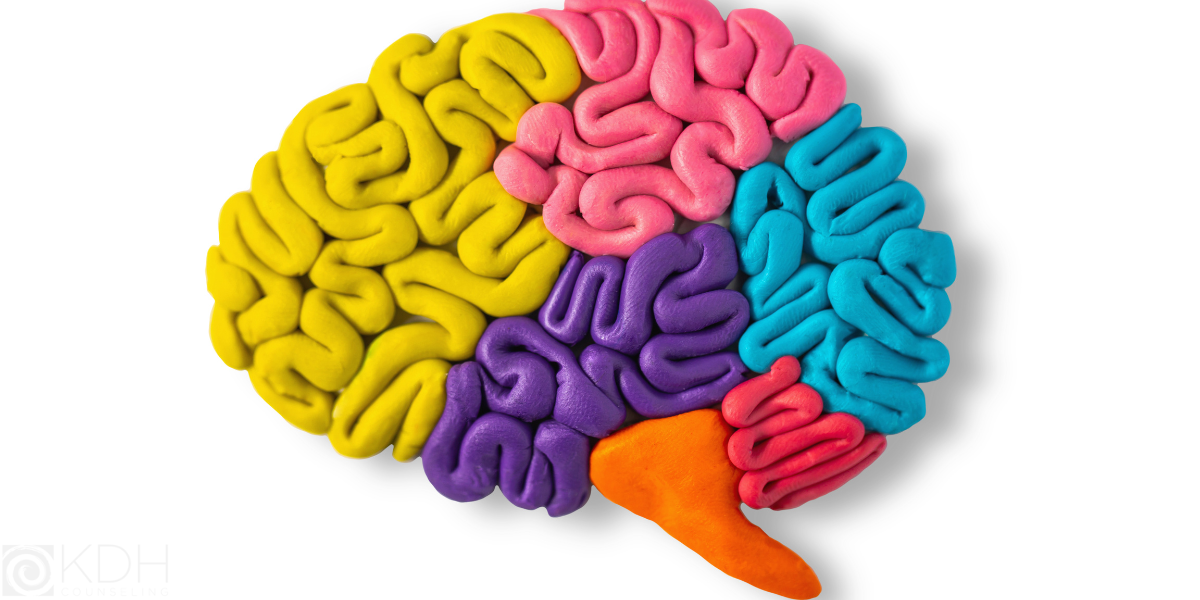Navigating ADHD Medication: A Comprehensive Guide
Attention-Deficit/Hyperactivity Disorder (ADHD) is a complex neurodevelopmental condition characterized by persistent patterns of inattention,...

Ever felt like your mind is a whirlwind of thoughts, racing faster than you can keep up? Welcome to the world of ADHD. As someone who's navigated this unique experience through my training to become an ADHD-Certified Clinical Services Provider I've learned that there's strength in knowledge. Let's explore the ups, downs, and everything in between of living with ADHD.
ADHD, or Attention Deficit/Hyperactivity Disorder, is a neurodevelopmental disorder characterized by inattention, impulsivity, and sometimes hyperactivity. Neurodevelopmental is the key word for this diagnosis—this means that symptoms develop over the lifespan and affect brain development. Onset of most neurodevelopmental disorders happens early in life, typically before a child is school-aged.
Yes, it's very common for ADHD to be diagnosed in adulthood. Despite onset occurring early in life, what we know now about the development of ADHD is that symptoms can be camouflaged or “masked” by folks. I typically refer to these masking techniques as “adaptations” in my practice. Whether subconsciously (or even consciously) many of my ADHD clients have managed to overcome or override their symptoms in order to function in the world. A lot of time in session tends to be dedicated to helping clients understand the mental cost of masking and how to cope with said mental load.
Because ADHD is highly genetic (there is a 45-50% chance of parents passing on ADHD to their children), families who have gone without proper diagnosis and intervention will often assume that the symptomology of ADHD (impulsiveness, forgetfulness, disorganization, etc.) is just “the norm”. This can prove to be a great disservice to some people as ADHD is a dimensional diagnosis—while symptoms are typically universal in their presentation, the severity of said symptoms is unique to each person.
Symptoms can vary, but common ones include difficulty paying attention, impulsiveness, hyperactivity, forgetfulness, and disorganization.
No, ADHD is a brain-based condition. It is a neurotype and influences the way people receive information from the outside world. ADHD has, unfortunately, always had a negative stigma attached to it. Initially, ADHD was called “Defective Moral Control”, then “Minimal Brain Dysfunction”, followed by “Hyperkinetic Disorder of Childhood” before professionals settled on its current label. But even ADHD has its faults as a descriptor! ADHD isn’t truly about inattention—it’s about motivation! People with ADHD can possess an acute ability to hyperfocus—but it must be on a subject they are truly interested in.
Treatments often include medication, therapy, or a combination of both. The best outcome for treatment is the combination of medication and therapy. Despite its negative reputation with some folks, medication for ADHD (usually stimulants) has been proven to be effective in instilling a sense of confidence in their ability to be neurodivergent in world that has neurotypical expectations of people. Including therapy in treatment also serves to build efficacy in management of symptoms.
While some symptoms may improve with age, ADHD is a lifelong condition. Because ADHD is a neurodevelopmental disorder this means exists throughout the lifespan. ADHD cannot be cured, but people can build confidence in their ability to exist in a neurotypical world while honoring their neurodivergence successfully with the right therapist and medication.
For AFABS and people who go through menopause symptoms can actually be exacerbated due to the diminished amounts of estrogen (which influence dopamine and serotonin levels…which influence executive functioning).
Understanding, patience, and effective communication are key. Sometimes a phenomenon called “Double Empathy” can happen where neurodivergent and neurotypical individuals struggle to empathize with one another due to how they exist in the world. Curiosity can go a long way when employed in relationships with loved ones who have ADHD. Instead of judgement or assumption, if you can ask and dare to understand how they’re seeing things it can foster a healthy relationship.

Attention-Deficit/Hyperactivity Disorder (ADHD) is a complex neurodevelopmental condition characterized by persistent patterns of inattention,...

When I am in my office, I am guided by what I needed when I was younger. I needed a therapist that was empathic, funny, nonjudgmental and above all...

Let's face it: when you realize you need help navigating life's complexities, the thought of finding a licensed therapist can feel overwhelming....